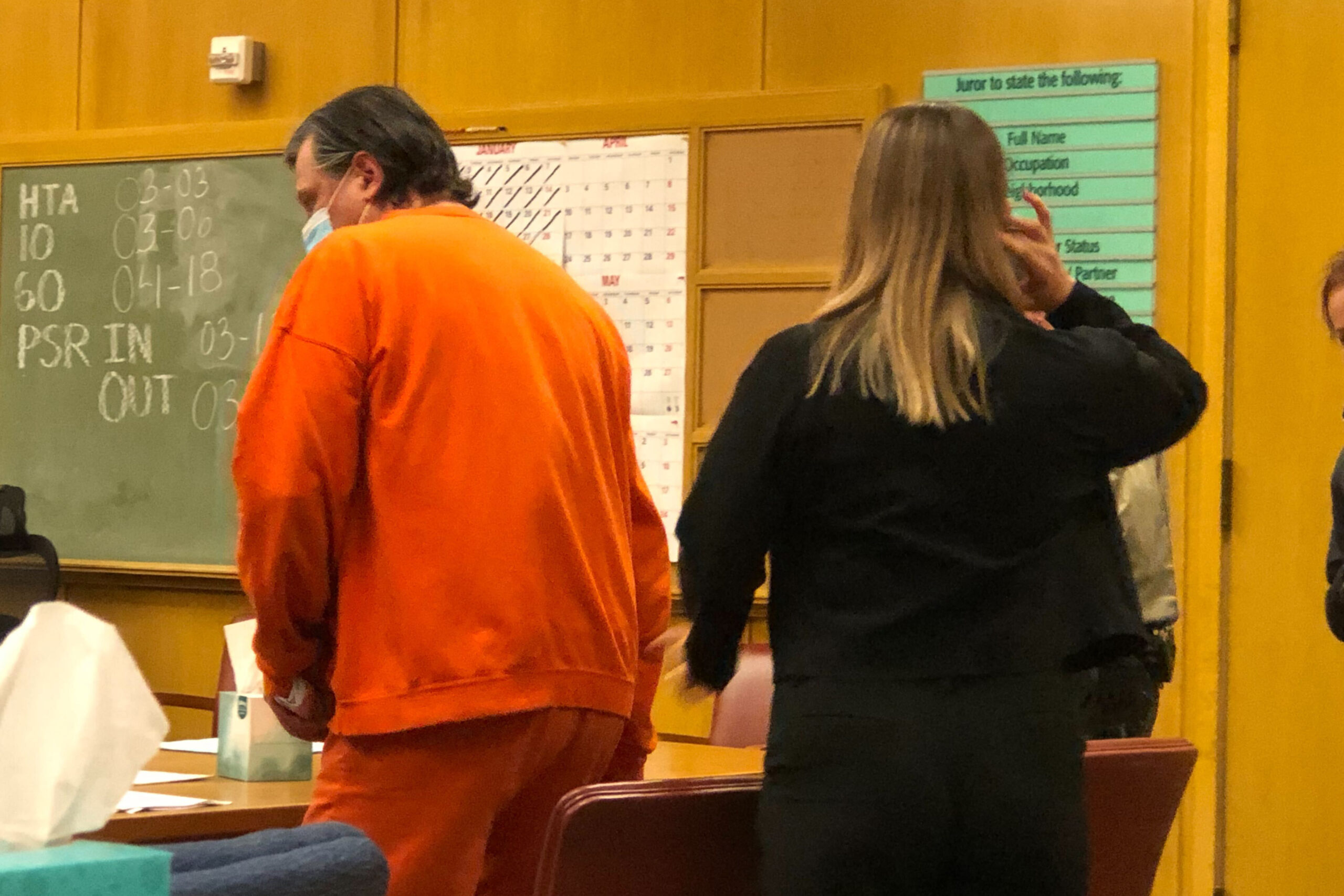A man accused of terrorizing a San Francisco synagogue with an imitation firearm will still face hate crime charges, despite a judge throwing out two previous hate crime enhancements earlier this month.
Dmitri Mishin stands accused of walking into the Schneerson Center, a synagogue in the Richmond District on Feb. 1, and firing off blanks during an evening study session.
No one was injured, but the shooting terrified the house of worship’s largely elderly and Russian-speaking congregants.
The district attorney initially charged Mishin with two felony religious terrorism counts with hate crime enhancements, but they were dropped after a preliminary hearing cast doubt on claims that Mishin’s actions were motivated by antisemitism.
Two days later, on March 9, the prosecution filed additional charges based upon newly discovered victims. Mishin now faces six felony counts of interfering with religious worship—religious terrorism charges—with hate crime enhancements, plus seven misdemeanor counts for drawing a replica firearm and disturbing a religious meeting.
During a Tuesday arraignment, Mishin pleaded not guilty to all 13 charges.
Mishin’s attorney, Deputy Public Defender Olivia Taylor, said she will push for the new hate crime enhancements to be dropped.
The new charges are “disappointing to me because I think the judge’s [previous] ruling was very clear,” Taylor told The Standard.
The District Attorney’s Office did not respond to a request for comment by publication time.
The charges represent a new twist in an already bizarre case that has seen a court debate what constitutes antisemitism and contemplate issues like mental health, World War II and Soviet history.
During the preliminary hearing, Deputy District Attorney Jamal Anderson used posts from Mishin’s social media—including a photo of him in a Nazi uniform—to argue that he was antisemitic.
But Taylor demonstrated that the photograph was from Mishin’s role in a short film about World War II and argued that he is a history buff who suffers from mental illness.
During the hearing, Mishin’s mother, Ludmila Mishina, told the court that he is, in fact, Jewish.
She said that, in Russia, where she and her son were born, they venerated the memory of World War II and that Mishin’s grandfather had fought Nazi Germany during the war. That had instilled in Mishin a lifelong love of history, she said.
“There’s no way we, fighting the Nazis in World War II, would come to America and become Nazis,” Mishina told the court. “It’s just an unbelievable accusation.”
A police officer who interrogated Mishin testified that he claimed shooting the gun was a “form of prayer” for his friend’s bird.
In the end, Judge Loretta M. Giorgi concluded that there was not probable cause to charge Mishin with a hate crime, saying she saw no clear evidence that his actions were motivated by bias.
That was hardly an expected outcome.
In the days after the incident at the Schneerson Center, The Standard reported that several social media pages appearing to belong to Mishin contained antisemitic propaganda and a video of something burning in front of the synagogue.
In one such tweet, which was not discussed in the hearing, Mishin’s account responds to U.S. Senator Lindsey Graham in grammatically incorrect Ukrainian: “We will drown k***s in k*** blood.”
On March 16, a judge granted a two-year gun violence restraining order against Mishin in a civil case. Before that hearing, City Attorney David Chiu told The Standard that was Mishin a “textbook example” of someone who should not have access to firearms.
